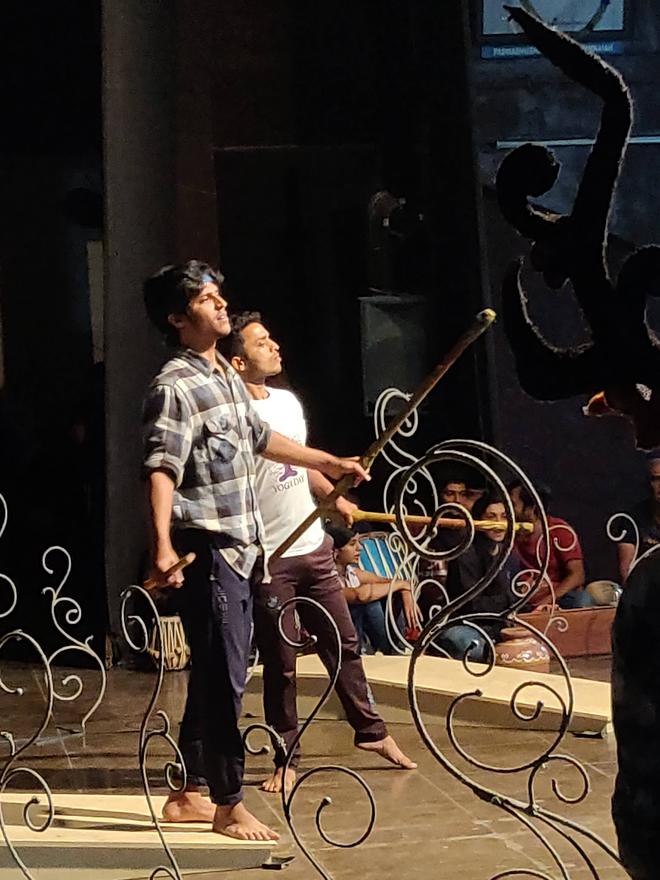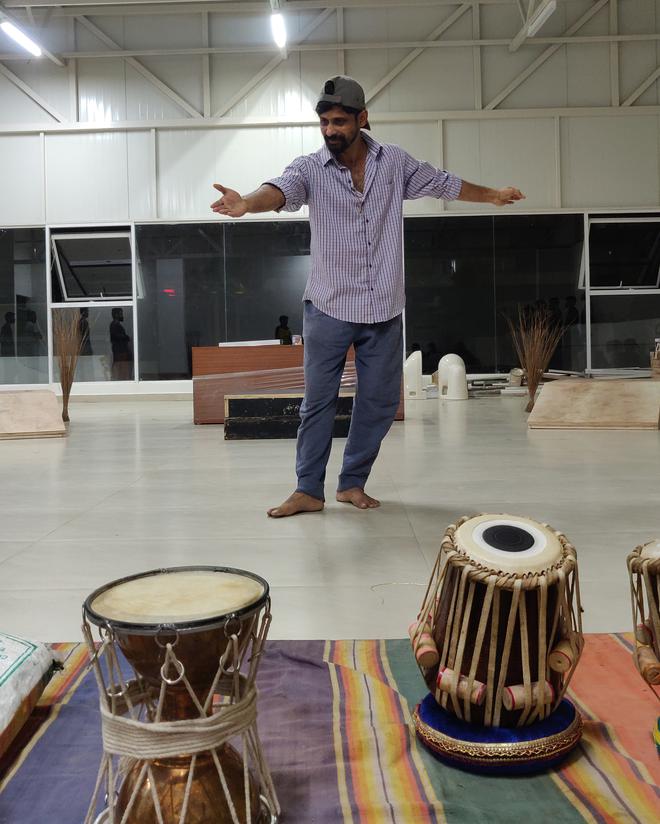Producing some of India’s finest directors, writers, actors, musicians, producers and performance spaces, Bengaluru has had a strong and rich theatre culture over many decades. In the last two decades the theatre scene, both professional and amateur, has not just evolved with great plays being produced but also the kind of audience who enjoys theatre.
Just as theatre has been evolving over the years, the rehearsal process has also been evolving simultaneously. While the very process of rehearsal and what it costs has changed much, many theatre persons bemoan that finding rehearsal spaces was easier earlier compared to what access to spaces is like today.
There were days when theatre troupes would easily have their drama rehearsals at a director’s home, huge sheds or backyards, grounds, open air theatre spaces, auditoriums and many such spaces. However, with the drastic growth of Bengaluru over the last two decades, and the number of theatre troupes increasing, and with the costs also sky-rocketing, finding affordable spaces for rehearsals has gotten harder.

More groups, more productions
Many Kannada, Hindi, and English amateur troupes perform anywhere between 20-100 shows in a year. Most teams make it a habit to rehearse for a couple of days before each show, and reserving a theatre space even for a short time is among the most tedious and expensive parts of showcasing a production for a troupe.
According to the database provided by the Nataka Academy, Bengaluru has more than 350 registered and un-registered amateur and professional theatre troupes. With 350-plus troupes performing regularly, there are very few identified spaces for rehearsals like H N Kalakshetra, National College Basavanagudi, Suchitra Film Society and Trust, Kappanna Angala, The Untitled Space, Vyoma Art Space and Studio, Lahe Lahe, Alliance Francaise, Yuvaka Sangha, Our Theatre Studio and WeMove Theatre.
Senior theatre practitioners say that even the very few theatre spaces in Bengaluru in the 70s and 80s were affordable only through a letter seeking permission or at a very nominal fee. In the late 2000s the spaces started getting a little expensive and charged anywhere between ₹200-300 for a whole day or for 3-4 hours. However, even these popular spaces have become difficult to afford or have a long waiting list, say senior practitioners.

Scenes 40 years ago
Sreenivas G. Kappanna, one of Bengaluru’s senior most theatre artistes who is known for his stage design, lighting, and production work, says the whole process of rehearsal was different back in the 70s and 80s. “Forty years ago, Kannada theatre did plays by well-known writers like Adya Rangacharya (Sriranga) and T.P. Kailasam. Back in those days rehearsals were not very intense. Later, when directors started coming from the National School of Drama (NSD), Delhi, the process got more intense, each movement of an artiste was very important. By then plays by the likes of Girish Karnad and P. Lankesh, were being produced.”
Mr. Kappanna added that director B. Chandrashekar brought in a new dimension to rehearsals “One director who brought a new dimension to rehearsals in Kannada theatre was B. Chandrashekar. He was a very disciplined director and expected everyone in the production to be punctual. The actors were not given special treatment. Every artist would have to take care of his/her props and take ownership of them.” Meanwhile, popular director, music composer, writer and actor B.V. Karanth’s rehearsals were fun, says Mr. Kappanna.
Says Shashidar Bharighat, a prominent theatre director and senior member of Samudaya, one of Kannada theatre’s well-known troupes that gained prominence in the 70s, “I came to Bengaluru in the 80s, when most of our rehearsals would happen at the quadrangle of National College, Basavanagudi or H.N Kalakshetra in National College Jayanagar or at Ravindra Kalakshetra. However, as the managements of the college kept changing, their policies too changed. Everything has become commercial. “
“Rehearsals spaces that cost ₹50 per day are now charging a minimum of ₹500. The shed at Ravindra Kalakshetra did not have a waiting list like how it has now, there were fewer teams, and the space was easily available. With Bengaluru growing, the number of theatre troupes has also become more over the years, making it very difficult to find a rehearsal space.”
Speaking to The Hindu, Vinay Shastry, a young director and founder of VASP Theatre, says a sense of inhibition has arisen for many institutions like government offices, schools and colleges to let out their space for theatre rehearsals.
“Earlier schools and colleges were very supportive in terms of renting out their spaces for rehearsals. We are not sure what the exact reason is, but lately they have become less supportive, and there is a sense of inhibition in renting out their space to theatre troupes. Our opportunities have dipped, and we are looking out for other avenues,” he says.
Mr. Vinay says that the lack of rehearsal spaces and the rent charged by rehearsal spaces has also affected the way plays are being produced. “We used to produce enormous productions that had a minimum of 25-30 artists in it, but now, due to the lack of rehearsal spaces, we are cutting down the production strength to not more than 5-8 artists, including actors, technicians and production managers, in order to do rehearsals in smaller places like our very own homes or office spaces. The rent charged by the rehearsal spaces are also too high, spaces charge anywhere between ₹ 500-1000 for an hour or two, affording these spaces is not easy for many theatre troupes in Bengaluru.”
Changing technology
Theatre and television actor Keethi Bhanu talks about how the approach to theatre among the young too has changed and technology has become both a boon and a bane for theatre over the years.
“About a 20 years ago, not all of us had phones, internet connection, social media, and other platforms to communicate with troupe members on the shows planned and the rehearsal dates. Whenever we met, we decided and fixed the dates for the next show and rehearsal. If there was an unplanned show, we would write letters and postcards to the troupe members well in advance asking them to keep themselves available for the shows and rehearsals, and everyone made sure that they would write back to us,” says Mr. Bhanu.
Over time, landlines became easily accessible and that became a mode of communication “A few years later, in the late 90s and early 2000s landlines were more accessible, some artists had landlines at their homes, and some had access to landlines at their workspaces.”
But he argues that while communication has gotten easier with smart phones, artists lack commitment and do not prioritise discipline in rehearsals. Mr. Bhanu feels that young artistes also lack time management and are not punctual “In the past Bengaluru was just as busy as it is now, though traffic has gotten worse. There were working women who had children too in our troupes back then, but if a director said that we rehearse at Six in the morning tomorrow, everyone, no matter where they worked or how many house chores they had to do, would show up. Things are different now, at least half the members in the troupe are late to rehearsals claiming to have a busy liefstyle.”







